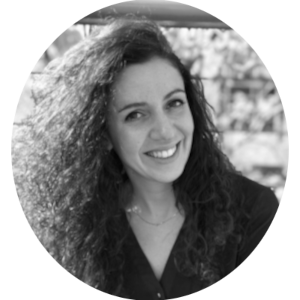Carmen Falcone
Oct 16, 2021 / Alumni stories

Carmen discussed her PhD thesis in Functional and Structural Genomics at SISSA back in 2016. Then, she moved to the United States. After five years as a Postdoc, recently her research project has been selected to pursue her research as a Principal Investigator in Italy, at SISSA.
What is your field of research, and how did it evolve during your career?
I have a background in molecular biology and neuroscience, and during my PhD I studied the genetic mechanisms regulating the development of the cerebral cortex in the mouse in both physiological and pathological context. Since my PhD the focus of my research has been a specific cell population of the brain: the astrocytes. During my postdoc, I kept doing research on astrocytes, but I expanded my interests to evolutionary developmental neuroscience, thus I started to compare astrocytes in different mammals, with a special focus on human and non-human primates. The project that I will lead at SISSA will aim to unravel the functions of a specific type of astrocytes, called the “interlaminar astrocytes” in the primate brain, compared to other non-primate animals. In the long term, this will help us to answer important questions like “ What makes our brain special?”, or “Can also astrocytes and not only neurons contribute to the exceptional cognitive skills that we observe in primates?”
What is Human Technopole? How did you get to know this grant opportunity?
A couple of friends in Italy, including my former PhD advisor at SISSA, shared with me the announcement of the funding opportunity thinking I would be interested in applying.
Why did you choose SISSA to go back to Italy? What is the main innovation that your research group will bring to SISSA?
I spent wonderful years at SISSA during my PhD, and I know how good is the institution in terms of high-quality research outcome and international environment. My research group will bring a focus on glial biology and evolutionary neuroscience that will complement the studies currently present at SISSA on neurodevelopmental biology and neuroscience research from a neuronal perspective.
Why did you decide to move to the US right after the PhD?
I really wanted to have an experience abroad, to get the chance to establish valid collaborations with international scientists and be immersed in an advanced research environment. I found all this at UC Davis, where I was also able to establish my independent line of research, that I will now continue and further develop at SISSA thanks to the grant I was awarded.
What are you going to miss about your US experience?
Definitely I am going to miss my friends in the US, and also the huge amount of scientific opportunities that are available here. I hope Italy will provide more investment of funding in science and academia in the upcoming years, like it has been doing over the past year.
During your PhD, you have been an active member of the SISSA Club, organizing activities aimed at fostering the networking among PhD students at SISSA. Do you think this experience will help you understand better your PhD students, considering you’ll be soon a PI and a mentor for them?
Yes, I definitely believe that my former experience as an active member of the student community will shape my way of mentoring in the future. I think that gave me a valuable perspective on the students’ need for guidance and connection during their PhD studies. We are human beings before scientists, and I think stepping back and listening to the students’ needs and curiosity is crucial to be a good mentor. I am excited to give back to the students of the same institution where I started my academic journey, and to commit to their growth and help them achieve their dreams in their career, whether that will be in academia or not.
You are also currently a voluntary and a member of the SISSA Alumni Society (the SISSA Alumni Society was founded in October 2018 with the main goal of allowing Alumni to connect with each other and thus to create a personal and professional network https://alumni.sissa.it/about-us/ ). Why did you decide to volunteer for the Society? Why do you think a former SISSA student should join the Society?
I think networking is pivotal for a broad range of careers. SISSA shaped great minds and it would be a pity not to be in touch with former members. We have had the luck to share a common path in the beginning of our careers and we can all provide a source of inspiration and a tangible support for each other.
In US, you have been an activist for the rights of the international scientists. Least, but not last, you and your peers created a petition and in August 2021 you wrote a correspondence to Nature to “call to update US re-entry rules for international researchers”. How did these experiences will impact your vision as a Principal Investigator?
As an international scholar in the US, I have got to experience first-hand the difficulties of internationals. This led me to appreciate the power of networking with other international peers and definitely impacted my vision as a future PI. I am committed to help future international lab members to navigate the Italian system and the general difficulties of living abroad and far from their families and home country. I will encourage taking time off and taking care of their mental health, which is a primary need during any kind of job.
So, you choose you would like to become a Principal Investigator within academia. What steps did you take, in order to do so?
I focused on establishing my scientific independence early during my postdoc experience. I strengthen the so-called “soft skills” like mentoring, leadership, writing papers and grants, and networking to establish collaborations. I believe all of these skills are usually overlooked but equally important to shape the career of young PIs. I wrote many grants applications and did lots and lots of applications to PI positions once I felt I was ready to make the jump.
Is there any advice you would like to give to people that would like to follow the same path?
I encourage to network with your peers and get lots of feedback along the way. Also, dream high, you will never know what opportunities might be the right fit for you if you never apply. I won’t lie, the job market is very competitive and can feel overwhelming and frustrating, so know you are not alone in the process and be ready to be persistent if this is the path you want to go for.
Lastly, the most terrible question we all fear during an interview, sorry about that: how do you see yourself five years from now?
This makes me smile, as it is indeed one of the most feared and frequent questions you get during interviews. I see myself leading a group of happy and motivated scientists, and also still committed not only to science, but also to advocacy efforts and outreach for kids and adults.
Interview by Elena Bianchetti
